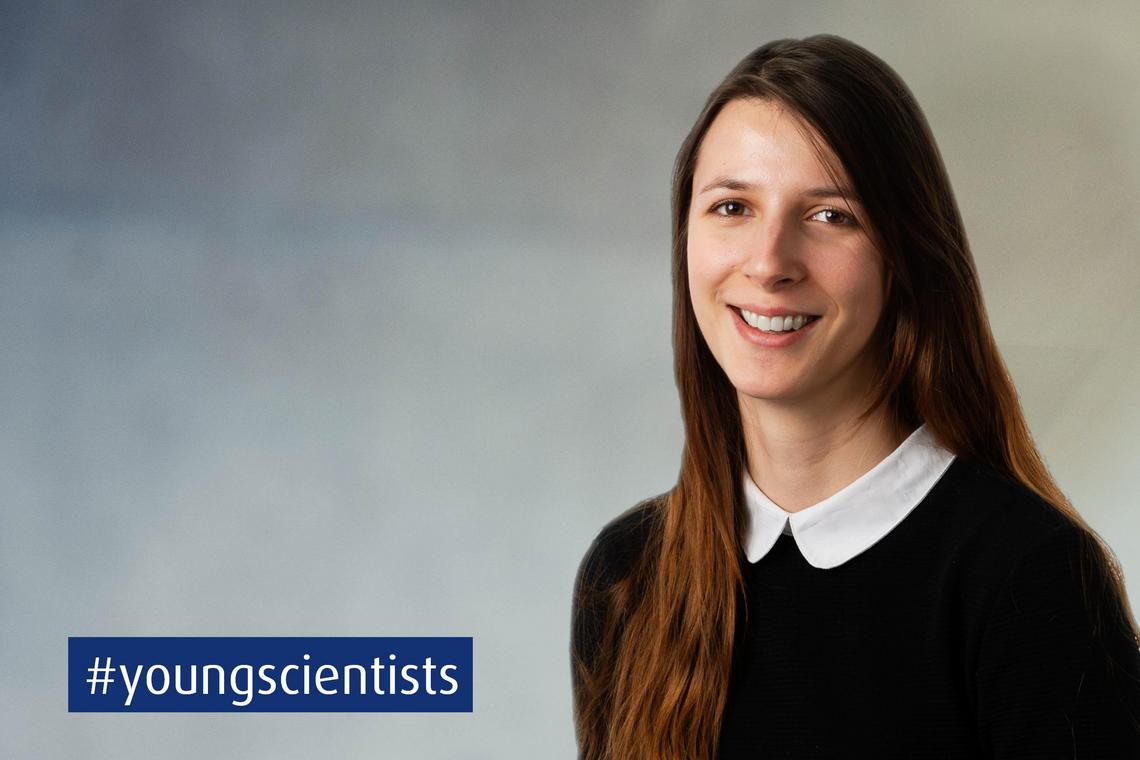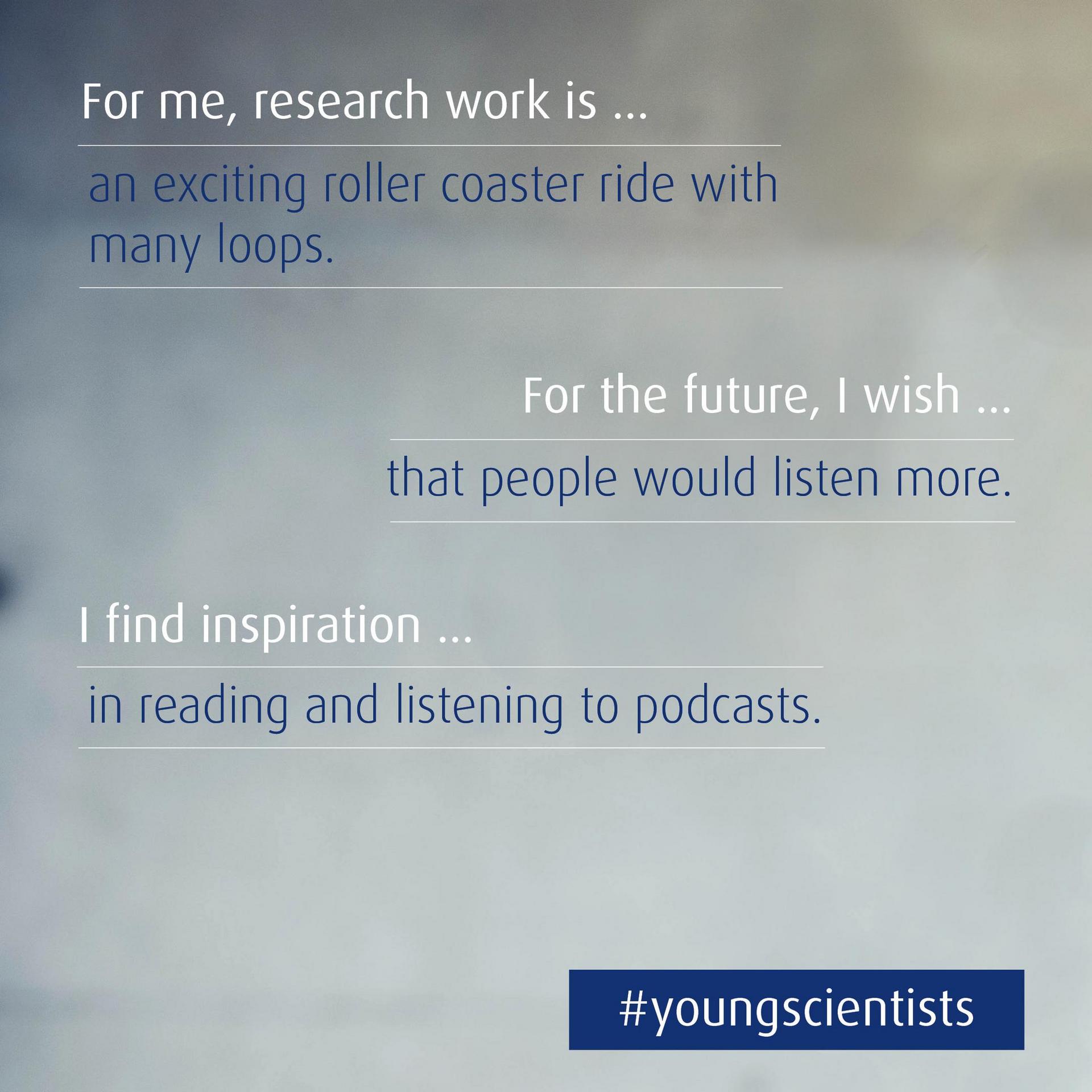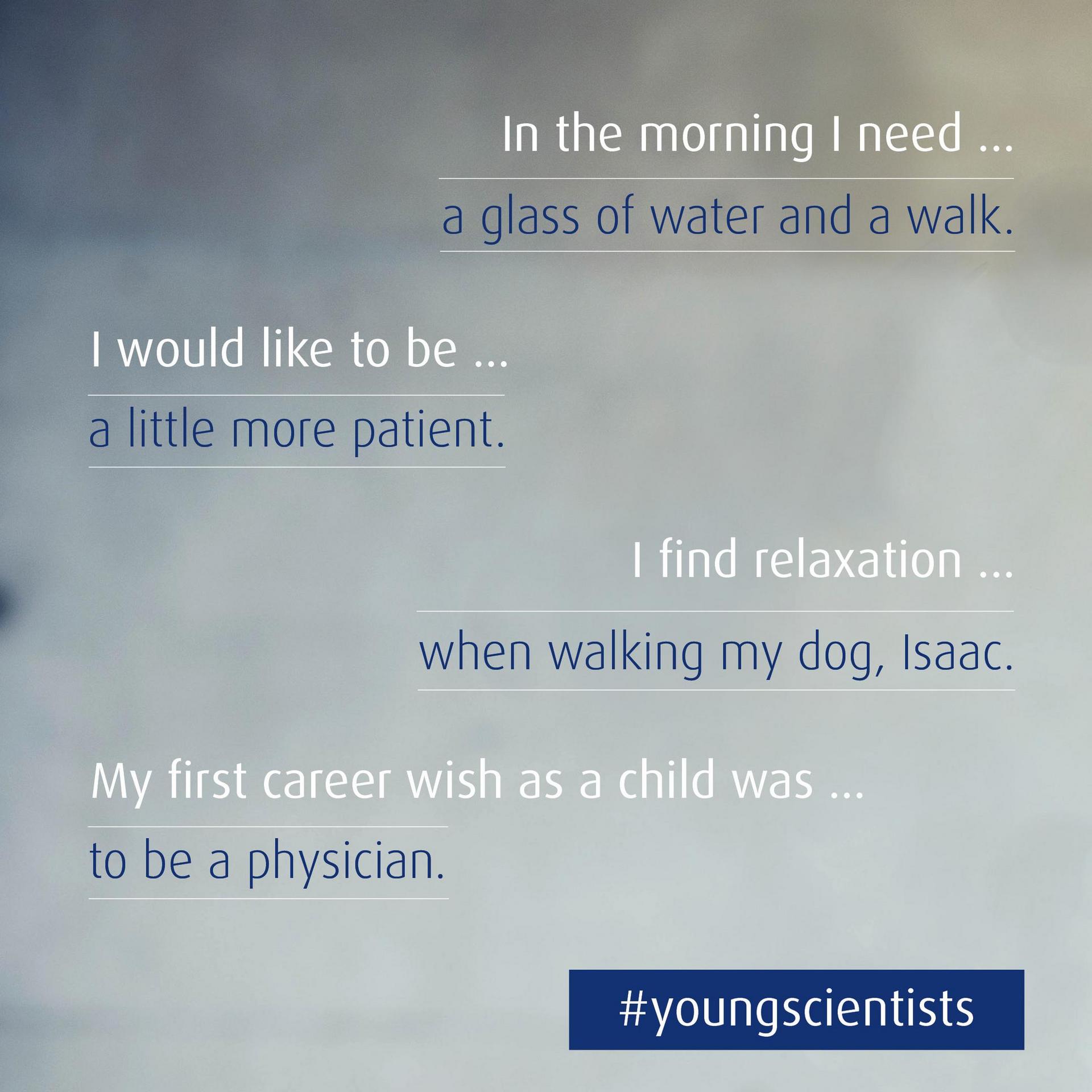Press
New therapeutic approaches for sepsis and inflammation

What is your research focus?
At the moment, my research focus is on immunology. Specifically, I am looking at issues around the innate immune system and its role in inflammation and sepsis. I have always found it very fascinating what our body can do and also what a great defence system we all have inside us, and there is still a lot to learn about it.
What are you researching in your current project?
In the current project “Development of efficient diagnostic methods and new therapeutic approaches in inflammation and sepsis”, which is led by Christoph Wiesner at IMC Krems, we are cooperating with the University of Continuing Education Krems and the Karl Landsteiner University. It is funded by the RTI programme of Lower Austria. My part is to take a closer look at the functions of certain proteins, the toll-like receptors, which are essential for the recognition of pathogens such as viruses or bacteria. They play a key role in amplifying an immunological response with the help of messenger substances called cytokines. These receptors are located on immune cells such as monocytes, also known as white blood cells, which constantly scan our blood.
What makes this project unique?
We employ a very new and innovative technique called optogenetics. This methodology uses an example from nature that works like this in a modified way: A light-sensitive protein domain is isolated from an alga and fused with a target protein, for example a toll-like receptor. Thus, the toll-like receptor can be activated with a light pulse of a specific wavelength. Intracellular mechanisms can be elucidated more precisely.
How can one imagine your research work?
I work with monocytes, which we can also convert into macrophages, the “scavenger cells”. These contain the receptor with the light-activatable domain, which helps us to analyse cellular mechanisms in inflammatory reactions more precisely. After light-induced activation of the receptor, we can measure and evaluate changes in gene expression or proteins using a variety of techniques such as polymerase chain reaction (PCR), microscopy or immunoblots.
How can the results of your research help patients?
Since an overreaction of the immune system, also known as sepsis, can manifest itself in very different/heterogeneous ways in patients, it is unfortunately often only detected much too late, which can then lead to multi-organ failure in the worst case. To date, there are only limited markers for early detection, and the therapy strategies are also unsatisfactory, as the complex immunological processes are still not sufficiently known. With our project and with the help of this new optogenetic technique, we aim to clarify still uncertain processes involving the toll-like receptors, which may ultimately also help to develop new diagnostic or therapeutic strategies.
Has there been a particularly formative experience in your research work so far?
Recently, my first congress in September was a very joyful and exciting experience for me. I was given the opportunity to present my research results there and even won an award, the Young Scientist Travel Award at the EUSAAT Congress. It was great fun to exchange ideas outside my research group, to get feedback and to see what else is being researched at the moment. I personally find scientific communication and networking within the research world, but also outside of it, important and enriching for everyone.
Why did you decide to study biotechnology?
To be honest, studying biotechnology was not my first plan, because I didn’t really know this field of study and the resulting career opportunities. After the first attempt at the medical admission test didn’t work out, I came across medical biotechnology and was immediately captivated. Only then did I actually realise that I was most interested in the cellular and pathological processes in humans.
Why did you choose science, and how did your career develop?
Because my grandmother suffered from Parkinson’s disease, I was particularly interested in neurodegenerative diseases such as Alzheimer’s or Parkinson’s disease. This took me to Oxford during my bachelor’s degree, where I researched an early detection test for Parkinson’s disease. Then I focused on the complement system, an important part of the innate immune system, and its involvement in epileptic seizures in children for my master’s thesis at the AKH in Vienna. I realised that the immunological aspect is still not sufficiently included in many clinical pictures and that many things are still unknown. This made me realise that I wanted to delve deeper into a topic of immunology, which has taken me to Krems to the research group of Christoph Wiesner at IMC Krems.
What do you personally think women in science need, and what advice would you give to aspiring female scientists?
I notice that by now a large number of women choose and complete scientific and technical courses of study, but this does little to change the fact that it is mostly men who are seen in leading positions. There are many reasons for this, one of the most important being the unpaid care work that women often do on the side. Therefore, there is an urgent need for more measures that support women and facilitate their advancement, as many structures and spaces are still male-dominated. A tip or a thought that helps me is: persevere and bite the bullet for things that are worthwhile and really close to your heart, but set limits and also learn to accept when things don’t work out or you realise that maybe it wasn’t the right thing for you after all. This often opens up new paths and possibilities you were not even aware of.
Katrin Colleselli as a private person: What inspires you? What drives you?
I am motivated and inspired by people who fight tirelessly for a fairer and more open-minded world, whether it is about equal rights or new and innovative insights. Every person can do their part, and I want to do that too.
What career did you want to pursue as a child? Are you glad today that your career path turned out the way it did?
I wanted to be a physician for a long time, but in the end, I wanted to be a pathologist because cell physiology and molecular pathology interested me the most. I am very happy and grateful to be at the point where I am now, and I would do it all over again.
What do you find exciting about research work?
Since I like to have variety in my everyday life, it is very enriching that my work is extremely multifaceted and there are always new things to research or include. Even if you learn that results often turn out differently than expected, that’s what makes it particularly exciting. Research work is not a boring thriller where you already know how it ends, but like an odyssey that always promises new adventures.
About Katrin Colleselli
Katrin Colleselli, MSc (27) is a research assistant at IMC University of Applied Sciences Krems. She works in the Inflammation, Sepsis and Regeneration project. She is currently studying “Regenerative Medicine” at the University of Continuing Education in Krems. For her research project, she is working in Christoph Wiesner’s group at IMC Krems. Before that, the young researcher from Lower Austria completed her Bachelor’s degree in “Molecular Biotechnology” at FH Campus Wien and her Master’s degree in “Molecular Biology (focus on neuroscience)” at the University of Vienna.




